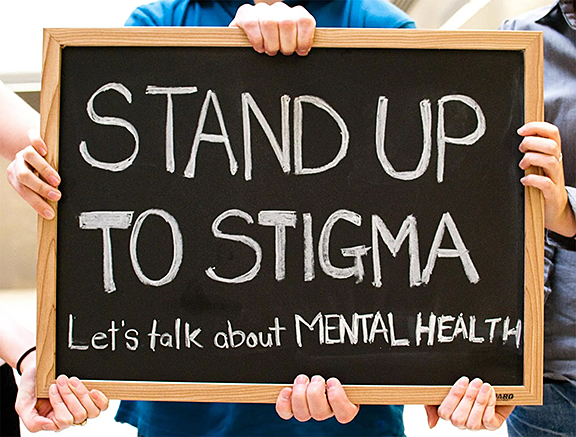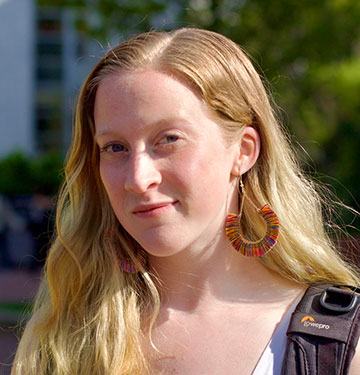The Importance of Destigmatizing Mental Illness
About one in four people struggles with a mental illness. Twice as many people have symptoms of anxiety and depression, like sadness and worrying, trouble sleeping or difficulty concentrating. These are the increased numbers due to the COVID-19 pandemic, when more people grappled with mental health issues.
So why is mental health still a taboo topic?
I used to hate talking to people about my problems. In high school, when I was feeling depressed, I would dig a tiny dark hole and squeeze myself inside, shutting out everyone around me. I refused to accept help – therapy was my worst nightmare. Talking to a stranger about the deep, dark parts of my brain? No, thank you.
But an eating disorder in late 2020 took away the option to avoid therapy. I’m a competitive distance runner who long had the dream of being an Olympian and brushing elbows with the pros I’d looked up to for years. But I was going about it all wrong, trying to look like them instead of focusing on my overall well-being. If I didn’t accept any help, I would never recover – and I would never run again.
I’d seen a couple therapists in high school, but my appointments were sporadic and torturous. I said very little to whatever psychologist was across from me, and what I did say was usually underselling the truth or a full-out lie. I thought therapy wasn’t “for me.” In reality, I had to learn the hard way that therapy doesn’t work unless you’re honest about your struggles.
When I started seeing a sports psychologist in 2020, I spent many of my weekly appointments crying. I wasn’t happy seeing a therapist, but I knew I’d be even less happy if I couldn’t recover. My psychologist allowed me to feel and share all my emotions openly, and my stubbornness ceased – partly because I knew I didn’t have a choice, but partly because it actually felt good to be real for once.
Over time I built a close relationship with my therapist. I truly trusted her, and that trust is what made my recovery possible. I was able to heal my relationship with food, my body, and my favorite sport. Since then, I’ve been working to destigmatize mental health in sports and beyond. I don’t want anyone else to hold back from getting the help they need.

How to break the stigma
Pre-2020, when I was fervently anti-therapy, I believed that therapists were fake people who just judged me for being messed up. In reality, they’re not there to judge; they’re there to help.
Therapists are meant to listen to you and advise you based on what you tell them. If you believe they’re judging you and minimize your struggles or lie, like I did, they won’t be able to help you. Being honest with them will only improve the treatment you receive, which will improve your overall well-being.
Though I thought my tactic of isolation was protecting me, it also made me feel like I was alone. I felt like no one would understand me. But I needed to recognize that so many people struggle with mental illness every single day. When I told those around me I was recovering from an eating disorder, so many people told me they’d also had body image issues or struggled with eating disorders. Now, I had a community around me who understood what I was going through. This is true for mental health in general, too – being open can bring you closer to the people around you, who can likely relate to some of your feelings.
It’s easier said than done. When you’re anti-sharing or used to being closed off about your feelings, it can be difficult to open up for the first time. But it’s much more difficult to be in so much mental and emotional pain that you don’t have a choice. You don’t have to learn it the hard way.
Fostering open conversations about mental health starts with breaking the stigma in your head. Know that you’re not alone; you’re not “crazy” or “weird” because you’re struggling with mental health. You’re one of many people who are also struggling, and you’re deserving of love and support.

Make sure the people around you – friends, loved ones – know that you’re there for them. Creating an environment where people can speak openly and authentically forms strong support systems, so when someone is struggling, they have people to talk to.
Encouraging people to normalize discussions about mental health empowers them to seek support. This has the power to help people manage their struggles rather than letting them grow. The more people realize that mental health struggles are not abnormal, the more they’ll start to form a community of acceptance.
I have hope that people will continue to break their internal stigmas and become more open with others. The more this happens – the more people recognize that mental illness is a topic that can and should be discussed – the better off our community will be.












